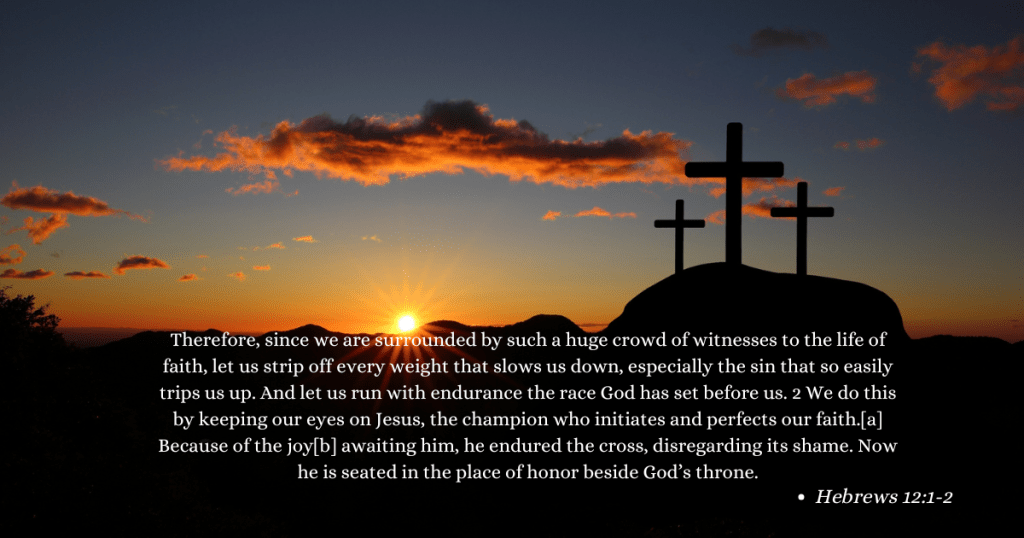Having spent so long in obscurity, there comes a time when we must step into the light. A time to emerge from our cocoons, just as a child leaves the safety of the womb to live and function independently. We must learn to breathe on our own, walk on our own, and do the things our parents once did, perhaps even surpassing them. (John 14:12).
But, as we step into this new phase, there is a crucial lesson we must first learn: how to trust God completely. Like newborns who rely entirely on their parents for sustenance, we must learn to depend fully on His provision. However, this dependence is not meant to last for just a season; it is a lifelong posture. God desires that we, as His children, trust Him completely for the rest of our lives.
When Jesus sent His disciples on their mission in Mark 6, He essentially told them, “Having raised and prepared you, it is now time to step out and do the works I have done. But you must go fully relying on God to sustain you.” They were to take nothing extra, only their walking sticks, their clothes, and the sandals on their feet.
Traveling Light: Lessons from the Israelites
I believe this is why the Israelites were initially tent dwellers; they traveled light, unburdened by excessive possessions. Amassing wealth and material goods can slow us down, making us comfortable in one place and hesitant to explore new opportunities in God. It dulls our willingness to say ‘yes’ when God calls us, making us, like Lot’s wife, look back in attachment to what we’ve accumulated. (Genesis 19:26)
As ministers of the gospel, we must be ready to go whenever God commands. Whatever would hinder us from being willing to go whenever or wherever He sends us, we must do away with. As we read yesterday, we must gouge it out, cut it off; even if it means living without certain benefits.
Complete Reliance on God 101
This is why complete trust in God was one of the first lessons Jesus taught His disciples when He sent them on their initial mission. It set the foundation for a lifetime of obedience. Having fully relied on God from the very beginning, they learned to trust Him completely, no matter where He led them. They saw firsthand that God was truly capable of meeting their needs.
However, trusting God does not mean embracing a life of poverty. Ministers of the gospel are not called to lack. But, we must ensure that our hearts are not tied to the riches we are blessed with. Wealth should never become the reason we serve God, nor should it be the reason we hesitate to obey Him when He calls us to an assignment.
It is absolutely okay to be wealthy. In fact, wealth is most impactful when it is in the hands of a believer who fears God, as it can help facilitate the preaching of the gospel. But that is exactly what wealth should be; a tool, not the foundation of our lives. It is not meant for us to build personal empires or anchor our security.
I believe this was the heart of Agur’s prayer when he said: “Give me neither poverty nor riches, but give me only my daily bread. Otherwise, I may have too much and disown You and say, ‘Who is the Lord?’ Or I may become poor and steal, and so dishonor the name of my God.” (Proverbs 30:8-9)
This was the prayer of a man who was honest with himself, a man who understood the dangers of both poverty and great wealth.
If we are not careful, we may find ourselves like the rich fool Jesus spoke about in Scripture; staring at our wealth and thinking, “Now I can eat all I want, travel wherever I desire, buy the most luxurious cars, build the best houses in Banana Island, or even construct an estate on Eko Atlantic!” Indeed, wealth not only puffs up but can also drive a man to madness! (Luke 12:16-21)
Complete Trust in God is a Core Course (Lessons from Moses and Jesus Christ)
Many have remained in their wilderness season longer than necessary. Their silent years seem to stretch endlessly, not because God has forgotten them, but because they are yet to pass this crucial course.
I believe that even today, complete trust in God remains one of the first lessons God teaches His servants when He calls and sends them. I like to think of this as a course in the school of God, a course where you are taught how to live with abundance and how to live with little. Paul said, “I have learned how to abound and how to be abased!” (Philippians 4:12).
This is not an elective course that you can choose to take or ignore; it is a compulsory one. Some courses in life are optional, but this one must be taken. In fact, failing this single course can cause a person to spend extra years in God’s school, repeatedly “carrying over” the course.
Moses, a man who had lived in comfort and privilege, lacking nothing while being raised in Pharaoh’s palace, had to spend forty years as a shepherd in the wilderness before God could use him to lead Israel. In the wilderness, he was no longer a prince but a servant. Here, he learned to work with his hands, to earn a living for himself; unlike in Egypt, where everything was at his beck and call. He had to learn not only to depend on God but also how to shepherd God’s people with complete trust and reliance on Him alone.
Jesus Christ, our perfect example, spent years in obscurity, working as a carpenter before stepping fully into His public ministry. He owned nothing, yet lacked nothing. He trusted God completely, demonstrating to us what it means to be content in every season.
Until we learn to trust Him in both lack and abundance, we risk delaying our journey. The quicker we embrace this lesson, the sooner we graduate from this course in the school of God.
Lessons from the Lives of Our Fathers in Faith
I have observed that many who were the first in their families to answer God’s call began their journey with nothing more than a “staff and the sandals” they wore at the time. By this, I mean they were not the wealthiest, the most knowledgeable in spiritual matters, or people who had their entire lives figured out. They simply responded with what they had and from where they were. The moment God said, “Follow me,” they obeyed without hesitation. And because God is a just rewarder of those who diligently seek Him, He blessed them abundantly.
As they served God, they recognized that He alone had blessed them beyond their expectations. Rather than becoming attached to their wealth, they used it to serve their communities, impacting lives far beyond their nation’s borders. Their wealth is channeled into projects that feed the poor, provide shelter, and educate people. They have established clinics, health centers, and even educational institutions founded on faith and the fear of God. In doing this, they demonstrate that they are merely stewards of God’s riches, not owners.
Interestingly, upon closer interaction with these men, one finds that despite the vast wealth passing through their hands, they live remarkably disciplined lives. Many of them fast more often than they feast and are highly selective about what they consume. They don’t have the best personal devices, some don’t even own more than a basic phone for making calls. They live lean lives. Their homes are either spacious enough to accommodate many people or, for those who value their privacy, modest enough to house just their families, while they provide numerous shelters for as many people as need to be housed. Their lives reflect the principle that wealth is not for personal indulgence but for advancing God’s kingdom.
God has most definitely called you, given you power and authority as you go about making Him known. As you go about your assignment, can He trust you with wealth? Can He trust that the wealth He desires to bless you with won’t be the end of you?.






